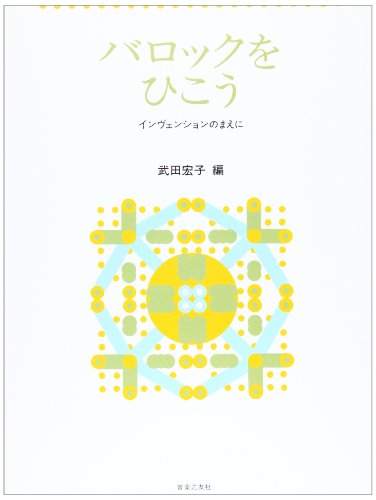- 著者
- 武田 俊彦
- 出版者
- 一般社団法人 日本医療情報学会
- 雑誌
- 第22回日本医療情報学会春季学術大会 (シンポジウム 2018 in 新潟)
- 巻号頁・発行日
- 2018-06-15
3 0 0 0 IR 南米大陸に果てたナポレオン的「妄想」 : マシャード・デ・アシスとパラグアイ戦争
- 著者
- 武田 千香
- 出版者
- 東京外国語大学
- 雑誌
- 東京外国語大学論集 (ISSN:04934342)
- 巻号頁・発行日
- vol.69, pp.85-102, 2004
3 0 0 0 OA 特別講演「自然言語処理と知的創造」
- 著者
- 武田 浩一
- 出版者
- 一般社団法人 情報科学技術協会
- 雑誌
- 情報の科学と技術 (ISSN:09133801)
- 巻号頁・発行日
- vol.68, no.5, pp.212-218, 2018-05-01 (Released:2018-05-01)
3 0 0 0 OA 音声、音楽刺激に誘発される感性の能動的特性に関する生理学と音響学の融合研究
3 0 0 0 第9回心臓性急死研究会 入浴による心肺停止
- 著者
- 堀 進悟 副島 京子 篠澤 洋太郎 藤島 清太郎 武田 英孝 木村 裕之 小林 正人 鈴木 昌 村井 達哉 柳田 純一 相川 直樹
- 出版者
- 公益財団法人 日本心臓財団
- 雑誌
- 心臓 (ISSN:05864488)
- 巻号頁・発行日
- vol.29, no.5, pp.11-14, 1997
近隣救急隊の1994年12月から1996年4月まで16ヵ月間の出場記録を調査し,浴室内で発生した急病の調査を行った.浴室の急病は43例で当該期間の全救急件数の0.19%を占めていた.年齢は77±10歳と高齢者に多く,男女比は24例対19例と男性に多かった.診断は心肺停止26例(60%),失神(前駆症)14例,脳血管障害3例であった.各群とも高齢者が多く,明らかな年齢差を認めなかった.浴室急病の発生時期は,心肺停止のみならず,いずれの群も12-3月の厳寒期に集中していた。心肺停止は自宅浴室の発生が26例(100%)で,公衆浴場における発生は認めなかった. 一方, 非心肺停止例では自宅浴室が12例,公衆浴場が5例であった(p<0.01).さらに浴室内の発生場所を検討すると,心肺停止は浴槽内が22例(85%),洗い場が4例,非心肺停止では浴槽内が7例,洗い場が7例,不明が3例であった(p<0.01).溺水の有無を検討すると,心肺停止では21例に,非心肺停止では2例に溺水を認めた(p<0.01).すなわち,心肺停止は非心肺停止例と比較して自宅浴室の浴槽内で発生しやすく,溺水をともない易いことが示された.<BR>本研究により,公衆浴場よりも自宅浴室が心肺停止の危険をもたらしうることが示された.すなわち,身近に救助者がいれば入浴急死は防止できる可能性が示唆された.
3 0 0 0 OA オープンなデータベースを利用した行動計画提案に関する研究
- 著者
- 加藤 文彦 小出 誠二 武田 英明 落合 勇太 上田 健揮
- 出版者
- 人工知能学会
- 雑誌
- 人工知能学会全国大会論文集 (ISSN:13479881)
- 巻号頁・発行日
- vol.31, 2017
本研究は、運転手や同乗者の目的地に関する曖昧な要求に対して、オープンな常識データベースを用いて解決するシステムの構築を目的としている。このために、施設に関する常識をLinked Geo Data(LGD)、DBpedia等から施設、サービス、対象のオントロジーとして構築した。これらのオントロジーとLGDやDBpediaの事実データを組み合わせて、ユーザ要求から施設や地域を推薦する仕組みを試作した。
3 0 0 0 IR 「月島調査」データの2次分析 : 駄菓子屋の社会地図と権田保之助の民衆娯楽研究
- 著者
- 武田 尚子
- 出版者
- 武蔵社会学会
- 雑誌
- 武蔵社会学論集 : ソシオロジスト : Journal of the Musashi Sociological Society (ISSN:13446827)
- 巻号頁・発行日
- vol.2009, no.11, pp.1-29, 2009-03-22
本稿は,1918~20年に実施された内務省衛生局「月島調査」のデータを用いて,質的調査データの2次的利用・2次分析の方法を検討する。また,「月島調査」データに,「未発表データ・資料」があることと,その「未発表データ・資料」の内容も紹介する。 本稿で,2次分析の対象として利用するのは,「月島社会地図 第21図 駄菓子屋,ミルクホール分布図」である。これを歴史的一次史料として活用する。この社会地図を作成したのは,調査員の一人であった権田保之助という人物である。日本の民衆娯楽研究の草分けといわれる人物で,のちに映画研究の第一人者となり,戦後はNHK理事もつとめた。本稿では,第21図を用いながら,民衆娯楽研究を得意としていた権田によって,月島の空間構造・社会構造のどのような側面が明らかにされたのか,また逆に権田に欠けていた視点とは何かについて考察する。 権田に欠落していた視点は,のちの権田の娯楽研究の性格と通底している。また,日本における旧中間層の研究の特徴と共通する点を見出すことができる。本稿の第21図の2次的利用の実例によって,日本における中間層研究を再考し,日本の近現代の社会科学分野における労働者生活研究の分析視角を見直することにもつながる。質的調査データの2次的利用・2次分析は多様な可能性をふくんでいることが理解できるであろう。
- 著者
- 桝野 絢子 榎本 圭佑 長井 美樹 島津 宏樹 武田 和也 原田 祥太郎 榎本 敬恵 田仲 由佳 松田 忠司 今西 啓子 伏見 博彰 坂田 義治 岡田 倫之
- 出版者
- 日本内分泌外科学会・日本甲状腺外科学会
- 雑誌
- 日本内分泌・甲状腺外科学会雑誌 (ISSN:21869545)
- 巻号頁・発行日
- vol.30, no.4, pp.299-304, 2013 (Released:2014-01-31)
- 参考文献数
- 17
同時期に甲状腺癌が発見された家族性非髄様甲状腺癌(familial nonmedullary thyroid cancer:FNMTC)の3症例を経験したので,家系調査を行った。症例は37歳・女性,63歳・女性(母),41歳・女性(姉)の3名の家族で,画像所見と病理所見について比較し,その特徴を調べた。超音波画像では2cm以下の多発する腫瘤像を認め,粗大な石灰化を伴うものや小さなものでは比較的同じような類円形を呈していた。CT画像所見では石灰化を伴う腫瘤を両葉に認めた。病理学的所見では両葉に多発する腫瘤像を認め,個々の腫瘤は緻密な線維形成を伴っており,これらの所見は画像所見に反映されていたと考えられる。1症例の中で個々の腫瘤像の特徴が類似した多発する甲状腺乳頭癌をみた場合,FNMTCと考え,入念に家族歴を問う必要があると考える。
- 著者
- 藤瀬 幸 孝田 雅彦 桑本 聡史 三好 謙一 木科 学 加藤 順 徳永 志保 岡野 淳一 北浦 剛 武田 洋正 村脇 義和
- 出版者
- The Japan Society of Hepatology
- 雑誌
- 肝臓 (ISSN:04514203)
- 巻号頁・発行日
- vol.54, no.9, pp.600-606, 2013-09-20
- 被引用文献数
- 1
症例は50歳代の女性.入院6年前(2004年3月)からトリクロルメチアジド,ロサルタン,入院3年前からロスバスタチン,入院1年前からはフルボキサミンを内服していた.2010年6月に肝酵素の上昇を認め,入院となった.AST 505 IU/L,ALT 1076 IU/Lと高度の上昇を認めたため,薬物性肝障害を疑いフルボキサミン,ロスバスタチンを中止した.しかし,入院3日目には,AST 545,ALT 1182とさらに上昇したため,トリクロルメチアジド,ロサルタンも中止したところ,肝機能障害の改善を認めた.肝生検では急性肝炎の回復期の像であり,DLSTでロサルタンが陽性を示し,中止後に肝障害の改善が見られたことより総合的にロサルタンによる薬物性肝障害と診断した.6年以上もの長期間ロサルタン内服後に薬物性肝障害を発症した例はまれであり,長期投与薬物も肝障害の原因であることが示唆された.
3 0 0 0 OA (OS招待講演)コグニティブ・コンピューティングと音楽
- 著者
- 武田 浩一
- 出版者
- 人工知能学会
- 雑誌
- 人工知能学会全国大会論文集 (ISSN:13479881)
- 巻号頁・発行日
- vol.30, 2016
3 0 0 0 OA Face and Language Learning
- 著者
- 武田 礼子
- 出版者
- 国際基督教大学
- 雑誌
- 国際基督教大学学報. I-A 教育研究 = Educational Studies (ISSN:04523318)
- 巻号頁・発行日
- vol.58, pp.121-127, 2016-03-31
一般的にフェイス(面子)研究の原点は,コミュニケーション研究であるが,外国語教育研究において,フェイス研究の実証研究は稀少であるため,未だに発展途上の分野である。本稿では,フェイスと外国語学習を考察する。まず背景にある,ゴフマン(1967)のフェイス理論,またその影響を受けたブラウンとレヴィンソン(1987)のポライトネス理論を論じる。次にゴフマンと同様,フェイスを普遍的だと論じるリンとバウワーズ(1991)が提唱する構成概念を紹介する。また中国発祥と言われる文化特有のフェイスの具体例として,中国人留学生を対象とした研究も紹介する。本稿では普遍的・文化特有,それぞれの立場のフェイスの諸研究を考察し,感情とフェイスの関連のように潜在的可能性のある分野にも触れ,外国語教育への応用も検討する。
3 0 0 0 OA わが国紙パルプ産業における海外造林の展開(自由論題論文,1995年秋季大会)
- 著者
- 武田 八郎
- 出版者
- 林業経済学会
- 雑誌
- 林業経済研究 (ISSN:02851598)
- 巻号頁・発行日
- no.129, pp.117-122, 1996-03
- 被引用文献数
- 3
わが国における紙パルプ産業の海外造林は1970年代の東南アジア,大洋州諸国での試験造林事業をはじめ,ブラジル・紙パルプ資源開発プロジェクト,本州製紙のパプアニューギニアでの造林事業などがあげられるが,石油危機を契機に海外造林はしばらく停滞していた。しかし'80年の「チップショック」により紙パルプ産業は原料確保先の分散化や多角化を図るとともに,海外造林を中核とした製紙原料の開発輸入を進めることになった。とりわけ1980年代半ば以降の円高進行や1990年代に入っての地球環境問題などを背景に,紙パルプ資本の海外造林投資が相次いでいる。これらは安価な製紙原料となる短伐期型のユーカリ造林であるところに共通性があり,また進出先もタイ,ベトナム,チリ,ニュージーランド,オーストラリアといった環太平洋諸国に広がっている。これは紙パルプ産業による長期的な原料確保を補完するための新たな海外進出に他ならない。
3 0 0 0 精神の共和国は可能か : 武田泰淳対談集
3 0 0 0 バロックをひこう : インヴェンションのまえに
3 0 0 0 OA 原子力と窯業
- 著者
- 武田 栄一
- 出版者
- 公益社団法人 日本セラミックス協会
- 雑誌
- 窯業協會誌 (ISSN:00090255)
- 巻号頁・発行日
- vol.63, no.711, pp.392-396, 1955-07-15 (Released:2010-04-30)
3 0 0 0 OA ナノマテリアルの次世代健康影響―妊娠期曝露が子に及ぼす影響
- 著者
- 武田 健 菅又 昌雄
- 出版者
- 日本毒性学会
- 雑誌
- 日本トキシコロジー学会学術年会 第36回日本トキシコロジー学会学術年会
- 巻号頁・発行日
- pp.1803, 2009 (Released:2009-07-17)
ナノマテリアルの次世代健康影響―妊娠期曝露が子に及ぼす影響 武田 健 (東京理科大学薬学部、ナノ粒子健康科学研究センター) 菅又昌雄 (栃木臨床病理研究所) ナノマテリアルの次世代健康影響について紹介したい。 1.ディーゼル排ガス妊娠期曝露の脳神経系への影響: 排ガス中のナノ粒子は、母から胎仔に移り、未発達の脳血液関門を通過して脳内に移行することが示唆された。産仔脳にび慢性の多発性微小梗塞と判定される所見が認められた (Sugamata et al JHS,2006)。排ガス微粒子投与でも同様な所見が認められた。 2.酸化チタンナノ粒子の影響: 酸化チタンを妊娠マウス皮下に投与すると、粒子が産仔の脳に移行すること、脳末梢血管周囲に異常を引き起こすこと、脳の特定の部位にカスパーゼ3陽性細胞が認められることなどが明らかになった(Takeda et al JHS, 2009)。さらに神経伝達物質のモノアミン系の代謝異常も認められた。また、網羅的遺伝子発現解析並びに選択的遺伝子発現解析の結果からも様々な異常が明らかになった。 3.結論: 上記の結果及びその後の研究結果から以下のことが示唆される。ナノマテリアルは吸入、気管内、点鼻、皮下など投与法に関わらずナノマテリアルが妊娠した母マウスの血流にのれば、仔に影響を及ぼす。生まれてから成長する過程で様々な症状として現れ、それらは時として、重大な疾患の発症、増悪化に繋がる。 我々の研究と国内外で蓄積されつつある研究報告から、ナノ粒子はバクテリア、ウイルス、プリオンに続いて第4の病原体(正確には病原物質)と表現したくなるほど様々な病態を引き起こす。ナノ粒子は特に血管及び血管周囲に大きな影響を及ぼしている。 (本研究は井原智美栃木臨床病理研究所部長、押尾茂奥羽大学教授、二瓶好正東京理科大学教授をはじめ多くの研究者の指導や協力のもとに行われてきた。院生・学生を含むすべての共同研究者に深謝申し上げます)
- 著者
- 武田 純三
- 出版者
- 一般社団法人日本外科学会
- 雑誌
- 日本外科学会雑誌 (ISSN:03014894)
- 巻号頁・発行日
- vol.101, no.10, pp.703-707, 2000-10-01
- 被引用文献数
- 2
- 著者
- 小柴 等 相原 健郎 小田 朋宏 星 孝哲 松原 伸人 森 純一郎 武田 英明
- 雑誌
- 情報処理学会論文誌 (ISSN:18827764)
- 巻号頁・発行日
- vol.51, no.8, pp.1452-1468, 2010-08-15
ICT(Information and Communication Technology)の発展・普及にともなって,情報爆発という問題が顕在化してきた1).この情報爆発と呼ばれる問題への対策の1つとして,ユーザの望む,ユーザに適した情報を提供するための情報推薦技術が研究・開発されている.しかしながら,情報爆発の勢いはとどまることを知らず,すでに推薦結果であるユーザに適した情報までが氾濫しつつある.そこで本論文では,ネット上や物理世界における行動ログデータが多数蓄積された世界を想定し,従来の推薦手法に加えて,推薦結果である情報がユーザに受け入れられる可能性(情報の受容度)まで考慮した情報推薦手法を提案し,実験により評価した.具体的には,まず,社会心理学の知見をベースに説得性と称するユーザ間の情報受容度を算出するモデルを提案した.次に,実際の商店街を舞台に一般募集の被験者を対象として,行動ログデータを収集した.そのうえで,それらの行動ログデータを用いて説得性の算出を行い,被験者による評価実験を行った.評価実験の結果は,おおむね我々の仮説を好意的に支持するものであり,本論文において提案した"説得性を考慮した情報推薦手法"が,有効に作用することが確認できた.In the "information explosion" are when we can access the increasing amount of information available in digital form from anywhere and at anytime, a filtering method is one of the most important technologies to be solved; how to identify information whether it is adequate and relevant to a user or not. Although many information recommendation systems have been proposed, existing methods could not solve the problem of "overflow" of recommendations, if they judge the information only by using similarity measures of contents. In this paper, we propose a new recommendation approach based on persuasibility among users. We focus on lifelogging both in the real world and the information world. Our recommendation model the information acceptability of information from unknown users and assume that the information of highly persuasible users tend to be accepted than ones of little persuasible users. Our persuasibility model consists of expertise, trustworthiness, likability, and similarity which is typically used in collaborative filtering methods. We carried out some experiments for evaluating our method. Firstly, we developed a specific recommendation model and an experimental recommender. Secondly, we set an experiment to collect lifelogs in a authentic situation. In this experiment, we used 52 shops in a small but very popular town in Tokyo, and about 700 consumers were involved. Finally, we set up another experiment for evaluation of our recommender using a subset of these participants. Our experimental results suggest that our proposed "persuasibility-based recommender" is more useful than general collaborative filtering.
3 0 0 0 グループでウェブの探索を効率化する検索共有インタフェース
- 著者
- 武田 達弥 五十嵐 健夫
- 出版者
- 一般社団法人情報処理学会
- 雑誌
- 情報処理学会研究報告ヒューマンコンピュータインタラクション(HCI) (ISSN:09196072)
- 巻号頁・発行日
- vol.2008, no.11, pp.93-98, 2008-01-31
- 被引用文献数
- 1
本論文では、グループにおける検索活動を支援するシステムについて提案する。グループ内のユーザの間では興味・関心が共有されているため、検索活動の重複が大きい。そのため、グループのメンバがそれまでに行った検索履歴を利用することで、次に他のメンバが同じような検索を行ったときに目的となる情報にたどり着くまでの時間と労力を省くことが出来ると考えられる。本稿では、一つの実現例として、検索クエリが入力されたときに、過去に同じクエリで検索され有用と判断されたページを提示するシステムについて説明し、実際にユーザに使用してもらった結果について報告する。When searching a web using a keyword, the search engine returns many results and the user needs to pick desired one manually by visiting the returned many pages one by one. We try to reduce this burden by reusing the result of this task by other group members. Our basic assumption is that group members are expected to share general interest. For example, if one member picks page A as an appropriate search result for search query X after examining many search results, it is likely that another group member also wants to get page A when submitting search query X. This paper proposes search history sharing system that allows the users to get page A immediately when the second group member submit query X to save the user from checking many search results. Finally, we discuss our preliminary test.



